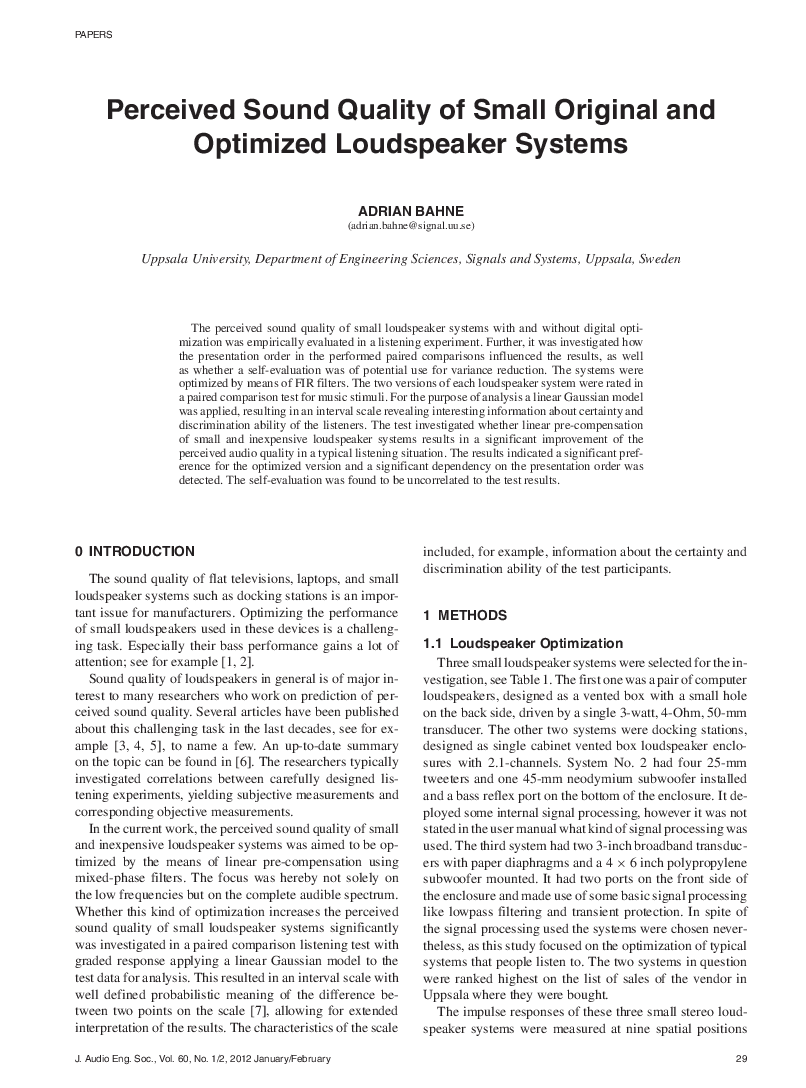Home / Publications / E-library page
You are currently logged in as an
Institutional Subscriber.
If you would like to logout,
please click on the button below.
Home / Publications / E-library page
Only AES members and Institutional Journal Subscribers can download
The perceived sound quality of small loudspeaker systems with and without digital optimization was empirically evaluated in a listening experiment. Further, it was investigated how the presentation order in the performed paired comparisons influenced the results, as well as whether a self-evaluation was of potential use for variance reduction. The systems were optimized by means of FIR filters. The two versions of each loudspeaker system were rated in a paired comparison test for music stimuli. For the purpose of analysis a linear Gaussian model was applied, resulting in an interval scale revealing interesting information about certainty and discrimination ability of the listeners. The test investigated whether linear pre-compensation of small and inexpensive loudspeaker systems results in a significant improvement of the perceived audio quality in a typical listening situation. The results indicated a significant preference for the optimized version and a significant dependency on the presentation order was detected. The self-evaluation was found to be uncorrelated to the test results.
Author (s): Bahne, Adrian
Affiliation:
Uppsala University, Department of Engineering Sciences, Signals and Systems, Uppsala, Sweden
(See document for exact affiliation information.)
Publication Date:
2012-01-06
Import into BibTeX
Permalink: https://aes2.org/publications/elibrary-page/?id=16163
(410KB)
Click to purchase paper as a non-member or login as an AES member. If your company or school subscribes to the E-Library then switch to the institutional version. If you are not an AES member Join the AES. If you need to check your member status, login to the Member Portal.

Bahne, Adrian; 2012; Perceived Sound Quality of Small Original and Optimized Loudspeaker Systems [PDF]; Uppsala University, Department of Engineering Sciences, Signals and Systems, Uppsala, Sweden; Paper ; Available from: https://aes2.org/publications/elibrary-page/?id=16163
Bahne, Adrian; Perceived Sound Quality of Small Original and Optimized Loudspeaker Systems [PDF]; Uppsala University, Department of Engineering Sciences, Signals and Systems, Uppsala, Sweden; Paper ; 2012 Available: https://aes2.org/publications/elibrary-page/?id=16163